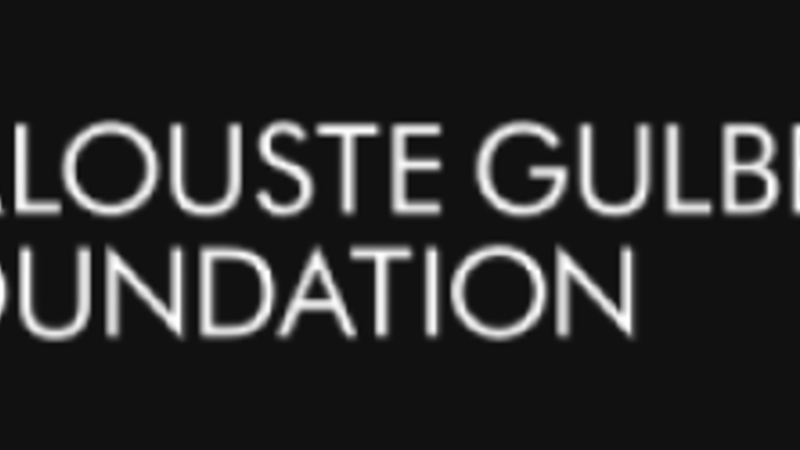Turkish--Armenian Relations
Cohorts of postdoctoral researchers participate in a scheme to advance academic research on Armenian—Turkish Relations. The researchers carry out independent research, focused on aspects of relations between Armenians, Turks, and (where relevant) other communities that have surrounded them.
Areas of research have included:
- Independent journalism in Turkey and Armenia in the post-2020 War period
- War narratives in the speeches of heads of state (discourse analysis)
- The 2013–2015 Turkish-Kurdish peace process in relation to recognition, apology, and reparations demands for the Armenian genocide
- Mapping commemorations of the Armenian genocide in Turkey (memory studies and spatial theory)
- Creative practice and memory in the diaspora (sensory studies)
- Recent initiatives (1999—2021) addressing the multicultural past of the Kurdish-Armenian region of Turkey and the 1915 genocide, of which the city of Diyarbakır was the scene.
- The impact of the 2020 Karabakh war and Turkey’s involvement in it on perception of and discourse about Turkey and Turks in Armenia.
- Official discourse developed around reconciliation as represented in the Turkish newspaper Hürriyet (for the years 2000—2015).
- The role of treasure hunts (definecilik) in Trabzon, Turkey, as instances of remembering.
- Prospects for peace-building between Armenia and Turkey in a non-democratic context. (A collaborative project.)
- The Armenian community in modern Turkey from the establishment of the Republic in 1923 to the September pogroms in Istanbul in 1955.
The postdoctoral researchers receive support in the form of mentoring from senior scholars in the field, together with training in media and policy work arranged by Cambridge Interfaith Programme. Online workshops provide opportunities to exchange findings, discuss analysis, and strengthen scholarly networks.
Scholars produce peer-reviewed journal articles, write for newspapers and general media (explaining their work for a non-specialist audience), and prepare and submit policy recommendations to relevant outlets.
Further reading
The following publications have been generated in the course of this scheme:
[In English:]
- Post-war distrust complicates new Armenia-Turkey talks, OpenDemocracy. 12 January 2022.
- The rise and fall of Kurdish ‘memory work’ on the Armenian Genocide, kurdishpeace.org, 1 July 2022.
- Those who remained inside the real ‘Club’: the precarious Armenian citizens of the early Turkish Republican years, Armenian Mirror-Spectator, 24 July 2022.
- Perspectives | In Armenia-Turkey normalization, where is civil society? Eurasianet, 16 August 2022.
- What do imaginations of haunted landscapes tell us about everyday politics? Takhayyul, 7 September 2022; and seriouslyDifferent.org, 16 September 2022.
- What next for Armenia and Azerbaijan? LSE blog, 23 September 2022.
- Confronting the Armenian Genocide in Turkey: A transitional justice approach. kurdishpeace.org, 24 April 2023.
- Ilham Aliyev’s anti-Armenian rhetoric and its genocidal undertones, Civilnet 8 May 2023.
- An (in)delicate dance of diplomacy? The South Caucasus response to the Ukraine conflict, The Foreign Policy Centre (FPC), 12 May 2023.
- ‘We haven't said our last word yet’: Traces of genocide, silence on the streets. DuvaR [English edition] 23 June 2023.
- A warm welcome or an act of domination? News reporting of Armenia-Turkey relations. Media@LSE blog. 27 June 2023.
- Public commemorations of the Armenian Genocide in İstanbul: A light of hope? Agos.com.tr. 19 October 2023.
- Enhancing political accountability through academic responsiveness: a policy perspective on the Nagorno–Karabakh conflict. EVNReport.com 19 December 2023.
- Supporting transnational independent journalism in Turkey and Armenia: How funding organizations can support stronger strategic collaboration through peer-to-peer learning for peace. CaucasusEdition.net. January 2024.
- Framing the Nagorno-Karabakh conflict: an analysis of the narratives of the state leaders of Azerbaijan, Armenia and Turkey, 2002–2022. Central Asian Survey. February 2024.
- Art and collective healing: Sarkis Zabunyan and the politics of denial. History of the Present (via dukeUPress.edu). 14.2. October 2024.
- Turkey’s silencing of an independent radio station highlights the country’s escalating assault on media freedom, TheConversation.com. 10 December 2024.
- Confronting the shadows: transitional justice and the Armenian genocide in Turkey. Chapter 9 in The Republic of Turkey and its unresolved issues: 100 years and beyond. Palgrave Macmillan (via link.springer.com). 2025.
[In French:]
- Le mouvement kurde et le travail de mémoire du génocide arménien encore menacés par l’État turc, The Conversation, 24 April 2022.
- Tentatives d’éroder le déni colonial turc: Un aperçu général du travail de mémoire des Kurdes concernant le génocide des Arméniens. Résonamces 5 (2023), pp 46-55.
[In Turkish:]
- Türkiye ve Ermenistan Arasındaki Normalleşme Sürecinde Sivil Toplum Nerede? Demos. 31 July 2022.
[“Where is civil society in the normalization process between Türkiye and Armenia?”] - ‘Son sözümüzü söylemedik daha’: Soykırımın izleri, sokakların sessizliği. Gazete Duvar. 23 June 2023.
[see above for English edition] - ‘Türkiye ve Ermenistan’daki Bağımsız Gazeteciler Barış Gazeteciliği Adına Nasıl Desteklenebilir?’ Demos. 24 January 2024.
[See above for English edition.]
Within a special issue of the periodical Birikim, on the topic Yeni bir hatırlama kültürüne doğru [Towards a new culture of remembering]
- Geçmeyen Bir Geçmişle Yüzleşmenin Zorlukları: Ermeni Soykırımı ve Kürt Müdahil Öznelliğinin Dönüşümü, Birikim, no 392 (December), pp. 34–52, 2021.
[“The challenges of facing an inexorable past: The Armenian Genocide and the transformation of Kurdish intervening subjectivity”] - Hatırlama kültürü ve şimdiki zaman, Birikim, no 392 (December), pp. 53–60, 2021.
[“The culture of remembering and the present”]
Note: This project is funded by the Calouste Gulbenkian Foundation. The views expressed are those of the participants and do not reflect the views of the Calouste Gulbenkian Foundation.

